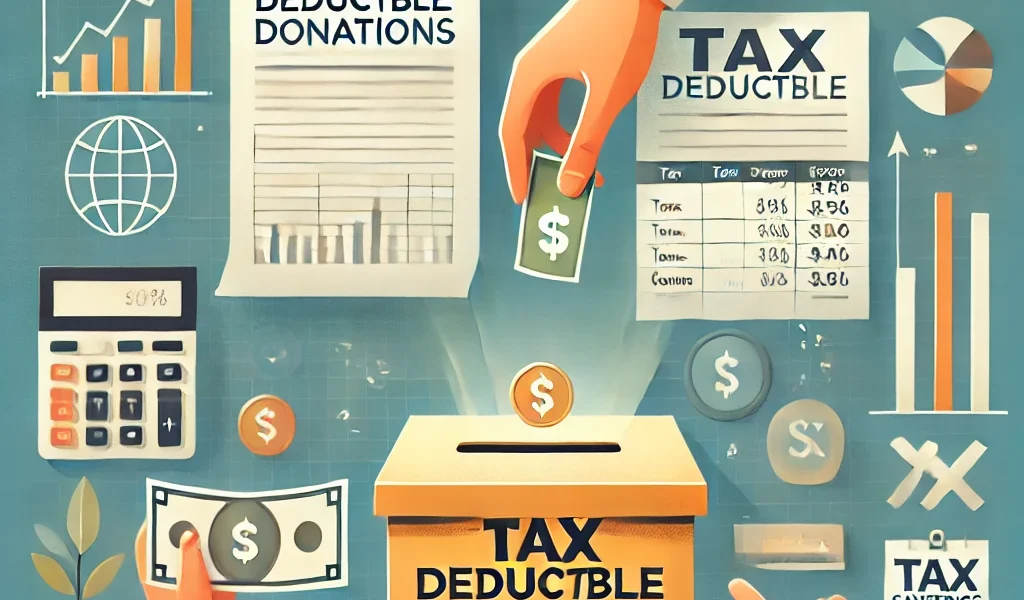Introduction
Charitable donations not only help those in need but also provide significant tax benefits for donors. Many tax authorities encourage philanthropy by offering deductions, exemptions, and credits for eligible charitable contributions. However, understanding how to maximize these tax benefits while staying compliant with legal regulations is crucial.
This comprehensive DIY guide will help you navigate the tax advantages of charitable giving, the types of donations that qualify, and the documentation required to ensure a smooth tax filing process.
Understanding Charitable Donations and Tax Benefits
1. What Qualifies as a Charitable Donation?
To be eligible for tax benefits, donations must be made to registered non-profit organizations, charities, or NGOs. Common types of qualifying donations include:
- Monetary Donations: Cash, check, or electronic payments to eligible charities.
- Property and Goods: Donating tangible assets like clothing, vehicles, or furniture.
- Stocks and Securities: Gifting appreciated stocks or bonds to a charitable organization.
- Volunteer Expenses: Certain out-of-pocket expenses incurred while volunteering for a registered charity.
2. How Charitable Donations Reduce Tax Liability
Donations can reduce taxable income in the following ways:
- Deductions: Lowering your taxable income by deducting the donation amount.
- Tax Credits: Some countries provide credits instead of deductions, reducing the actual tax owed.
- Capital Gains Tax Exemptions: Donating appreciated assets instead of selling them helps avoid capital gains tax.
- Estate Tax Benefits: Charitable giving can help reduce estate taxes when planning inheritance.
Types of Charitable Tax Benefits
1. Tax Deductions for Charitable Contributions
Many tax systems allow deductions based on the amount donated. For example:
- U.S.: Donations to IRS-recognized 501(c)(3) organizations are tax-deductible if you itemize deductions.
- U.K.: Gift Aid allows charities to reclaim an additional 25% of the donation amount.
- Canada: Federal and provincial tax credits are available for eligible donations.
- India: Section 80G of the Income Tax Act provides tax deductions for donations to specified charities.
2. Limits on Charitable Deductions
While charitable donations reduce taxable income, there are limitations:
- Percentage of Adjusted Gross Income (AGI) Caps: In the U.S., you can deduct up to 60% of AGI for cash donations to public charities.
- Donation Type Restrictions: Some donations, like non-cash items, have lower deduction limits.
- Carryover Rules: If contributions exceed the allowable limit, the excess can often be carried forward to future tax years.
How to Maximize Tax Benefits with Charitable Giving
1. Choose Eligible Charities
Ensure your donation goes to a recognized non-profit or registered charitable organization. Verify the status of the charity through official government databases.
2. Donate Appreciated Assets
Instead of selling stocks or real estate and paying capital gains tax, donate them directly to a charity. This strategy maximizes the benefit for both the donor and the organization.
3. Utilize Employer Matching Programs
Many companies offer donation matching programs, doubling your charitable contribution and increasing your tax benefit.
4. Set Up a Donor-Advised Fund (DAF)
A Donor-Advised Fund (DAF) allows donors to contribute funds, claim an immediate tax deduction, and recommend grants to charities over time.
5. Bunch Donations for Higher Deductions
If your total deductions don’t exceed the standard deduction threshold, consider “bunching” multiple years’ worth of donations into one tax year to qualify for a larger deduction.
Documentation Required for Charitable Tax Deductions
Proper documentation is essential to claim tax benefits and avoid legal issues. Ensure you:
- Obtain a receipt for all donations exceeding the required threshold.
- Maintain detailed records, including the charity’s name, donation date, and amount.
- For non-cash donations, get a qualified appraisal for valuable assets.
- File the appropriate tax forms, such as IRS Form 8283 for non-cash contributions in the U.S.
Common Mistakes to Avoid
- Donating to Non-Qualified Organizations: Ensure the charity is registered and eligible for tax-deductible donations.
- Overestimating Non-Cash Donations: Always use fair market value and obtain proper valuations for donated items.
- Ignoring Donation Limits: Be aware of AGI limits and carryover rules.
- Forgetting to Keep Receipts: Tax authorities may audit deductions, so maintain proper records.
Conclusion
Charitable donations provide a meaningful way to contribute to society while also reducing tax liability. By understanding tax laws, choosing the right donation methods, and maintaining proper documentation, you can maximize the benefits of your generosity.
Whether you’re an individual donor or a business looking to make a positive impact, strategic charitable giving can be a powerful tool for tax planning and financial management. Always consult a tax professional for personalized advice and stay informed about changes in tax regulations.




